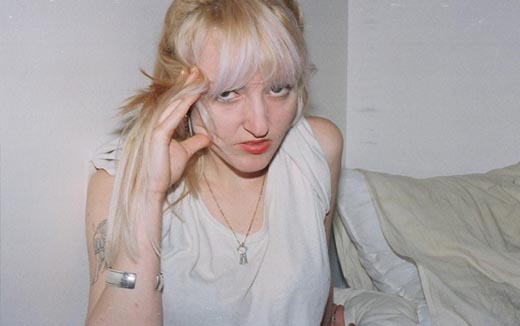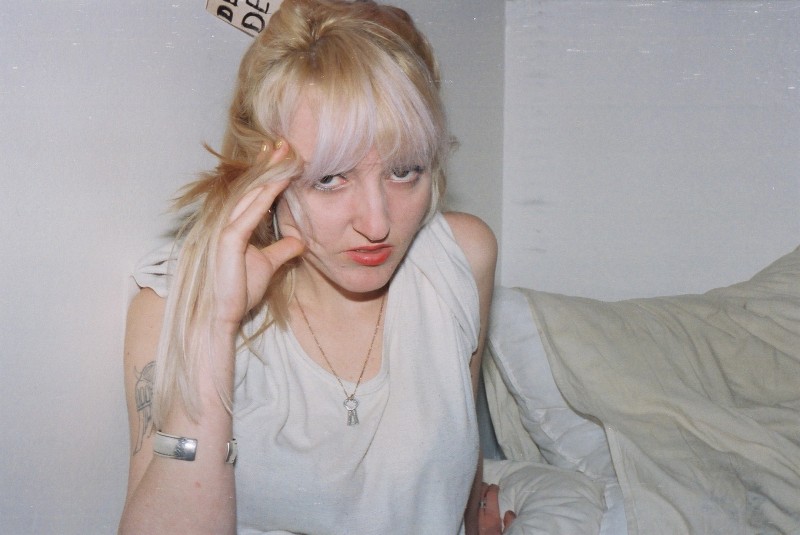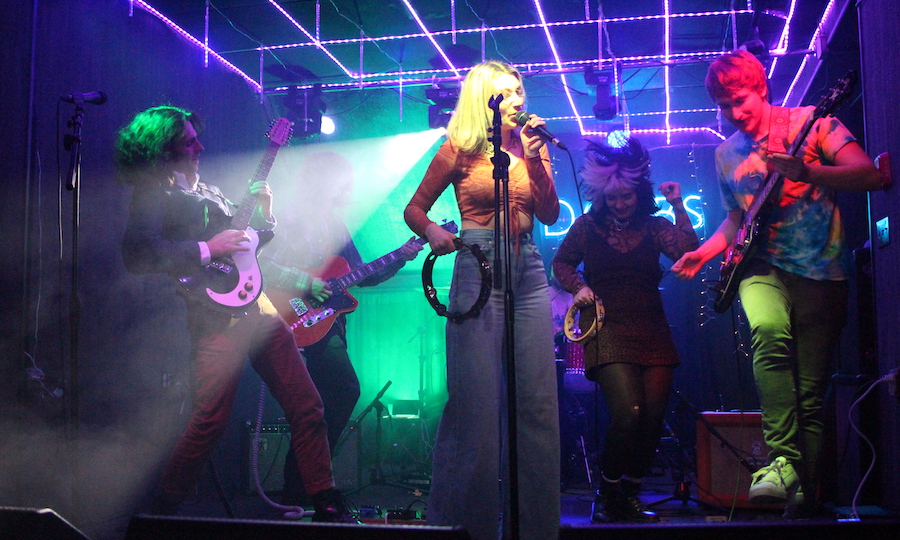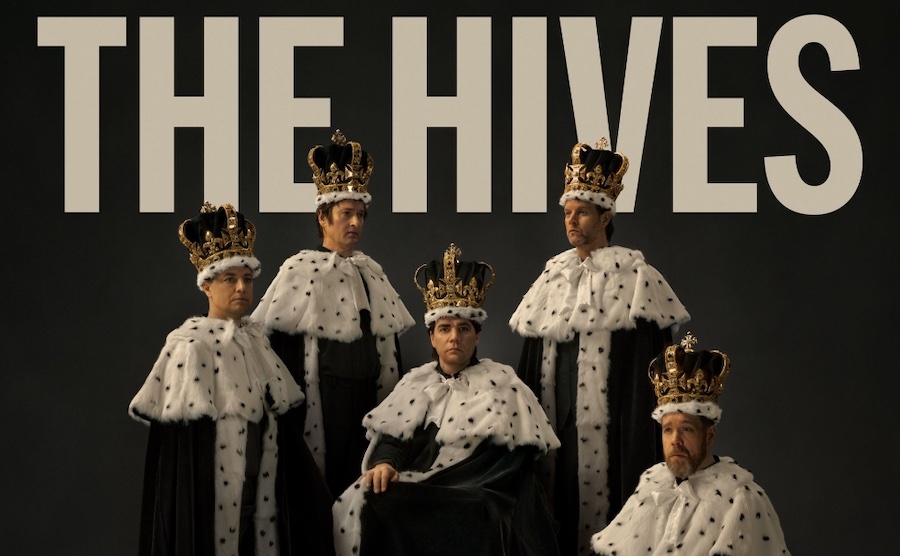The journey between a song being just a concept – a rhythm, a melody, a demo – to it being cut onto record is usually a long and winding one. Ideas sometimes blossom and die within minutes, some take months to process and become fully realised, and others are conjured, seemingly from nowhere, ready to be heard by the world. Songwriting and recording is an art form, arguably the most preserving one in pop culture these days, and we were lucky enough to have someone share her wisdom – and demos – detailing the arduous journey of recording rock music.
Sydney garage rocker Angie shares her demos and chats about recording garage rock with Owen from Straight Arrows.
Angie is the moniker of Angela Garrick, veteran of the Sydney garage scene and all-round legend. She has played in bands like Circle Pit and Ruined Fortune and Straight Arrows while churning out her own killer tunes as Angie. Her debut album Turning was released at the tail end of 2014: eight amazing tracks of vibrant rock music, full of squealing guitars and drone-y vocals.
For fans, demos are a valuable portal into the otherwise unknown depths of an artists song-writing process. From melodies recorded on a dictaphone to rehearsal sessions captured on an iPhone, recording demos has always been essential for artists in order to hash out ideas or create an outline for producers to work with. Speaking with Angie about the process, she reveals she “recorded [her] own home versions of every song on the album to give Owen (Penglis from Straight Arrows, who helped record the album) a guide to work from, but also for myself. A lot of the instrumentation was loosely improvised in these demos and then after I had to ‘learn’ them to replicate on the proper record.”
Apart from the practicality of creating a reference track for future recording, there is also something incredibly visceral about recording a demo. A moment or feeling is captured more honestly on the fly than something that has been laboured over for hours in a studio. “I still remember the time I recorded these,” says Angie, “I lived in St Peters with Nathan [Roche]. I was spending a lot of time alone, and would record music non-stop in my room. I remember recording these demos one New Years Day, all day, frustrated and yearning for something else. I look back upon this time fondly…the demos are priceless to me now, as it is an example of an idea at its impetus. The melodies have sprouted and they have been captured, like flies in a web. I managed to trap them, and now they’re mine! The demo reflects this excitement, this hurried quest to document something in a coherent way.”
Obviously this is process that is explored and cultivated with greater finesse in the studio, but often these moments are fleeting, and some of the magic can’t be replicated. “For example, the [demo] of Missing Out is quite different. I have tried to figure out the chords I played on the keyboard, but I just can’t! So I had to formulate a new chord sequence that sounded similar, however the tone of the song is now a little different.” Says Angie; “The demos are quite special, because they were made for me, not for any real purpose or aim, just as a personal project, that’s nice I think.”
Angie recorded TURNING with Owen Penglis in his home ‘studio’ in Chippendale (something that Straight Arrows are renowned for doing in order to achieve their signature scrappy, lo-fi rock ‘n’ roll). As her past collaborations probably suggest, Angie records under a pretty strict garage formula “The drum kit was in the lounge room, and the guitars in the kitchen,” she says. In the early 60s, young bands were confined to using multi-track tape recorders with only two or four tracks, meaning only that many mics could be used. The result was a (by modern standard) rough, lo-fi, and relatively unbalanced recording (see the seminal, incredible, Nuggets compilation) that modern artists like Angie days strive to replicate in one way or another.
“For the main part it was me and Owen day in day out, trying to be as decisive as can be and give a clear message about how I wanted the record to be,” says Angie. It’s a delicate art, garage rock. Trying to create something that has inherent charm in how abrasive it sounds is difficult, but there is something candid in the process. “Recording in a [proper] studio can be amazing, but it can also be hell,” says Angie, “I think the main issue with my setup on Turning was that I played every instrument myself, and therefore I never got a break or any downtime as I’d be doing takes all day. Owen also played drums on the record, and that was a bit hard as he was recording himself, which was a doubly difficult task.”
Nonetheless, Angie has done a brilliant job in capturing the ephemeral energy of her early demos. Turning is raw but vibrant, bristling with a type of intensity that is so hard to replicate in a proper studio. “The songs that comprise Turning all have their own stories to them, and the process involved in creating them was different for each one,” she says. “There is a darkness yet a warmth to the record that is unique, and I feel it is very much dictated by the house and style of recording session…It was a space I was very familiar with.”
Turning is out now via Rice Is Nice.




